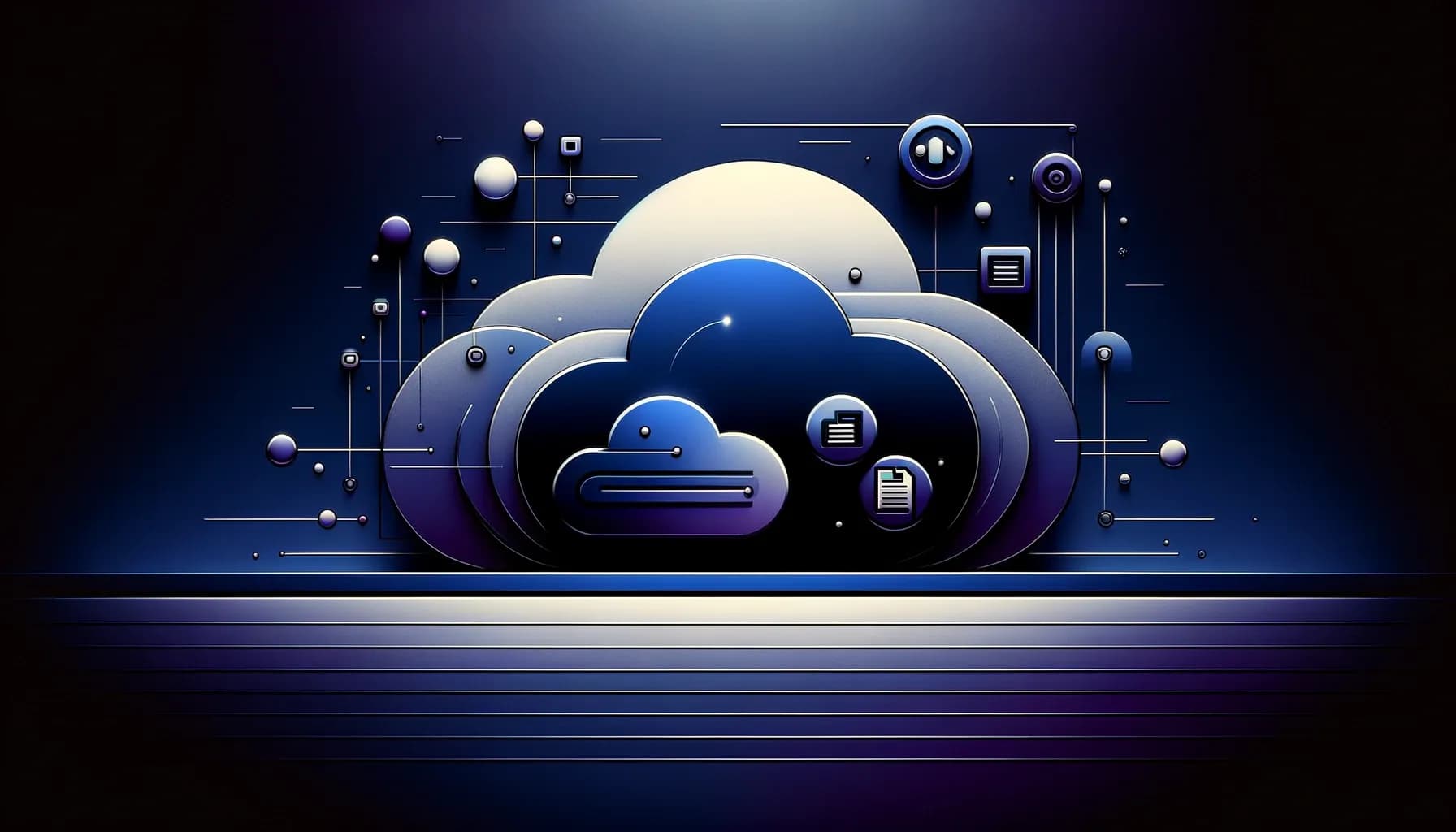The Importance of Personal Servers for CRM


In the realm of business technologies, Customer Relationship Management (CRM) systems are indispensable. Hosting these systems on personal servers unlocks myriad benefits, including superior data control and heightened security. This detailed exploration provides businesses with essential insights to leverage CRM systems effectively, enhancing customer interactions and operational efficiencies.
The Essence of CRM Systems
A CRM system is more than a software solution—it's a strategic platform for managing all interactions with customers and potential clients. It helps in organizing, analyzing, and synchronizing activities such as sales, customer service, and marketing efforts. Businesses harness CRM to streamline operations, deliver superior customer service, and ultimately boost sales figures.
Advantages of Personal CRM Hosting
Hosting a Customer Relationship Management (CRM) system on a personal server offers distinct advantages tailored to enhance business operations and customer management. Here’s a detailed breakdown of the primary benefits:
1. Enhanced Security and Data Privacy: Personal CRM hosting allows businesses to enforce their own security protocols, tailored to specific organizational needs or regulatory requirements. This ensures sensitive customer data is protected under the firm's direct control, reducing the risk of data breaches often associated with third-party hosts.
2. Customization and Control: By hosting a CRM system on a personal server, companies gain the ability to customize both the hardware and software according to their specific needs. This flexibility allows for optimizations that can enhance performance and user experience, making the CRM system more effective at handling unique business processes and workflows.
3. Cost-Effectiveness Over Time: Although the initial setup cost for a personal CRM server might be higher than subscribing to a hosted service, long-term costs can be lower. Businesses avoid ongoing subscription fees and can optimize their systems to operate more efficiently, reducing expenses related to data storage and processing over time.
4. Improved Performance: Personal servers can be optimized specifically for the CRM application, ensuring faster response times and reduced downtime. This can lead to a smoother user experience and quicker access to critical data, which is especially important for businesses with high customer interaction and data access demands.
5. Full Control Over Updates and Maintenance: Companies can schedule maintenance and updates based on their operational schedules without having to rely on external providers. This not only minimizes disruptions during peak business hours but also allows for immediate patches and updates when necessary, keeping the system secure and functioning optimally.
6. Long-Term Scalability: As the business grows, its CRM system needs can change. Hosting on a personal server provides the scalability needed to accommodate growing amounts of data and increasingly complex processes. Businesses can upgrade their hardware and expand capacity as needed without the restrictions often imposed by external hosting services.
By leveraging these advantages, businesses can achieve a more secure, efficient, and tailored CRM experience, directly contributing to enhanced customer satisfaction and operational success.
Choosing the Right CRM and Server Setup
Selecting the appropriate CRM system and server setup is crucial for ensuring that your technology infrastructure aligns well with your business goals. Here’s how you can make informed choices:
1. Assess Business Requirements: Begin by evaluating your business needs, including the number of users, the complexity of customer interactions, and specific features required such as sales forecasting, customer service functionalities, or marketing automation. This assessment will guide you in choosing a CRM system that best fits your operational demands.
2. Consider Integration Capabilities: Ensure that the CRM system can seamlessly integrate with your existing business applications, such as email systems, accounting software, and other operational tools. Integration capabilities can significantly enhance efficiency and provide a unified view of customer interactions.
3. Evaluate Server Specifications: Based on the CRM’s resource requirements, determine the specifications needed for your server. Consider factors such as processor speed, RAM, storage capacity, and network capabilities. A robust server will handle data processing and user requests more efficiently, ensuring smoother operations.
4. Determine the Deployment Model: Decide between on-premises, cloud, or hybrid server solutions based on your control, security, and scalability needs. On-premises servers provide complete control and customization, cloud servers offer scalability and ease of access, and hybrid models combine elements of both.
5. Security Considerations: Security is paramount when hosting sensitive customer data. Choose a CRM and server setup that offers robust security features, including data encryption, secure access controls, and regular security updates. Additionally, consider the physical security of the server if opting for an on-premises solution.
6. Scalability and Flexibility: As your business grows, so will your CRM needs. Opt for a system and server that are scalable and can adapt to increasing demands without requiring a complete overhaul. This might involve more upfront investment but pays off in the long run by accommodating growth without significant additional costs.
7. Support and Maintenance: Look for solutions that offer reliable technical support and regular updates. Having access to expert help and updated software can prevent many potential issues and ensure your CRM system remains effective and secure.
By carefully considering these aspects, businesses can set up a CRM system and server that not only meets their current needs but is also poised to grow with them, optimizing both customer relationship management and overall operational efficiency.
Implementation Essentials
Effective implementation of a CRM system on a personal server is crucial for realizing its full benefits:
- Installation Guidance: Offer detailed instructions for setting up and configuring the CRM software on your server.
- Employee Training: Develop comprehensive training to help staff efficiently use the new system and understand its benefits.
Navigating Potential Challenges
Deploying a CRM system on a personal server is not without challenges:
- Technical Maintenance: Be prepared to manage potential technical issues, from hardware malfunctions to software glitches, with robust IT support.
- Encouraging User Adoption: Mitigate resistance from employees by emphasizing the CRM system’s benefits and providing thorough training.
Emerging Trends in CRM Technology
The landscape of Customer Relationship Management (CRM) technology is rapidly evolving, driven by advances in artificial intelligence (AI), machine learning, big data analytics, and cloud computing. Here's a deeper look into the emerging trends that are shaping the future of CRM systems:
1. Artificial Intelligence and Machine Learning: AI and machine learning are increasingly being integrated into CRM systems, enabling more personalized customer interactions and predictive analytics. These technologies allow businesses to automate routine tasks, such as data entry and lead scoring, and provide more accurate forecasts and customer insights.
2. Enhanced Customer Experience Management: CRM technologies are focusing more on enhancing the customer experience through omnichannel support, which includes seamless integration of various communication channels like social media, email, and live chat. This ensures a consistent and personalized customer journey across all touchpoints.
3. Increased Use of Big Data: With the exponential growth in data, CRM systems are leveraging big data analytics to gain deeper insights into customer behaviors and trends. This enables businesses to make data-driven decisions and improve their marketing and sales strategies.
4. Mobile CRM: As mobile usage continues to rise, mobile CRM solutions are becoming more prevalent. These allow sales teams and customer service representatives to access CRM data on-the-go through smartphones and tablets, enhancing real-time decision-making and responsiveness.
5. IoT Integration: The integration of the Internet of Things (IoT) with CRM systems is another trend gaining momentum. IoT devices can feed real-time data into CRM systems, providing businesses with up-to-date information on customer usage patterns and equipment performance.
6. Voice Technology and CRM: Voice technology is starting to play a significant role in CRM systems. Voice-activated assistants can handle customer inquiries, set reminders, and even manage CRM tasks, streamlining operations and enhancing user experience.
7. Blockchain for CRM: Blockchain technology is beginning to influence CRM solutions by enhancing data security and customer trust. It offers decentralized storage of customer data, making it tamper-proof and transparent.
8. Social CRM: This trend focuses on integrating social media platforms into CRM systems, enabling businesses to manage and analyze customer interactions on social media for better engagement and service.
These trends indicate a shift towards more intelligent, integrated, and customer-centric CRM systems that not only streamline operations but also significantly enhance customer engagement and satisfaction. Businesses adopting these advanced technologies will likely see improved efficiency and competitiveness in their customer relationship management.
Conclusion
Adopting a personal server for your CRM system can transform your business, providing enhanced control over data and customizable features that grow with your enterprise. This strategy not only safeguards your information but also adapts to expanding business demands.
Take your business’s CRM capabilities to the next level with Crypadvise’s Anonymous VPS hosting solutions. Our services are designed to support high-performance CRM implementations, ensuring security, flexibility, and scalability. Invest in a VPS with crypto at Crypadvise today and revolutionize your customer relationship management.